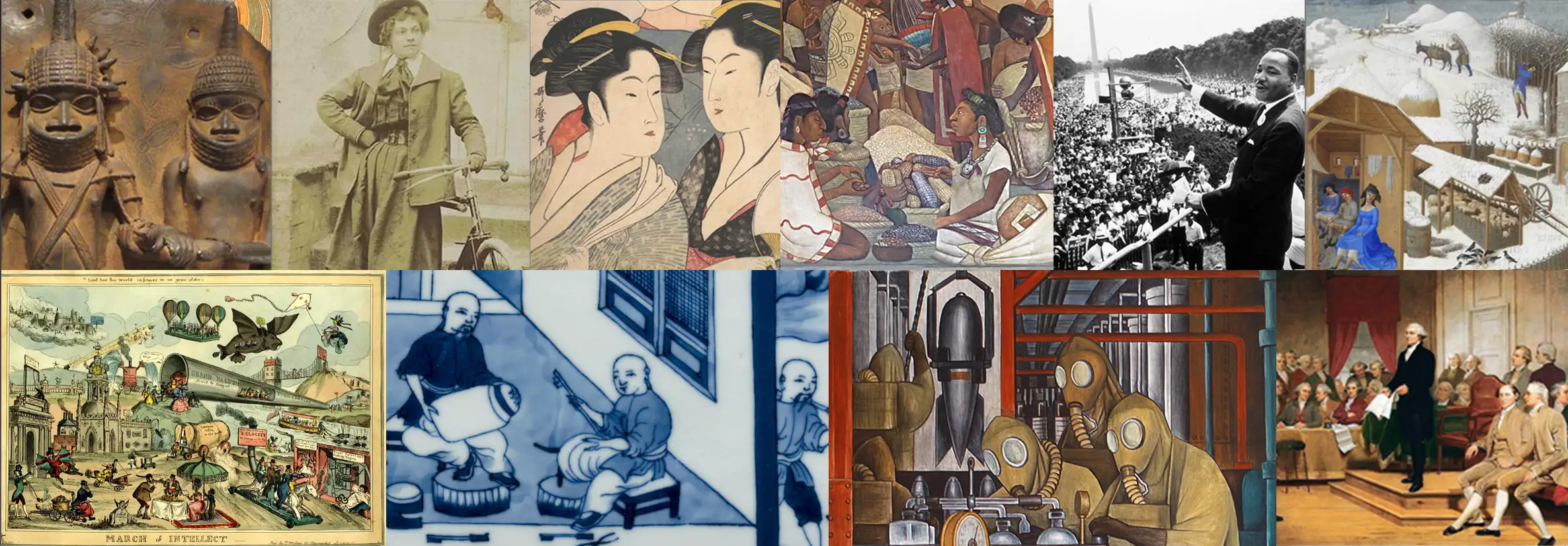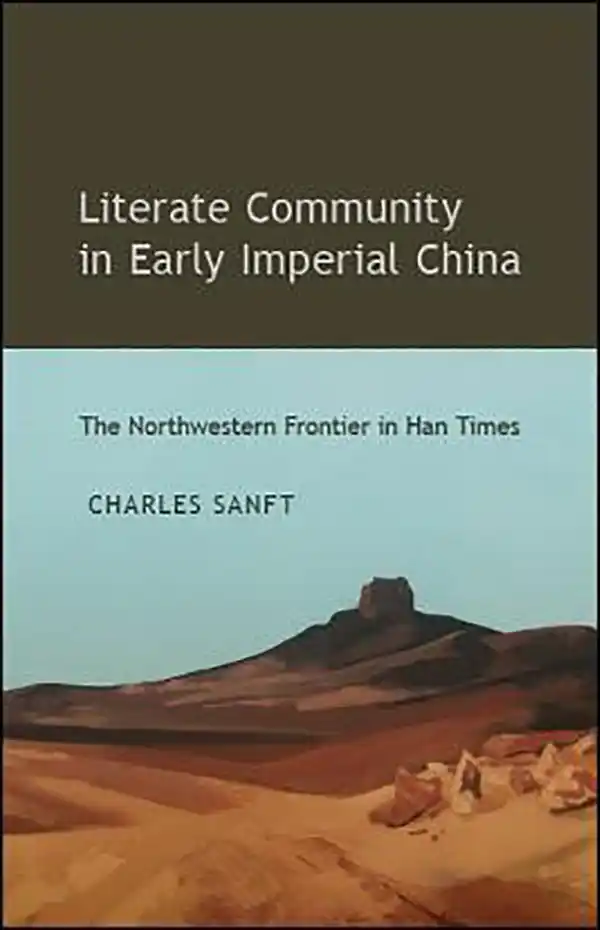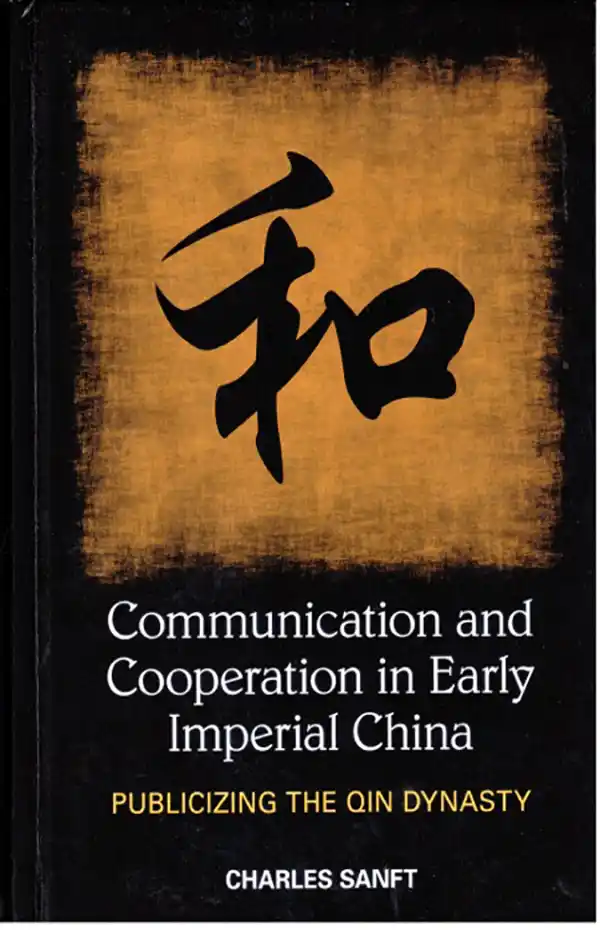Sanft, Charles

Specialties:
Early imperial China, manuscript studies, early Chinese law and political thought, translation
Phone
Books
Charles Sanft
Professor | History of Premodern China
Charles Sanft studies the history and culture of premodern China. His work explores points of contact between writing and experience, from political thought to government practice and poetry to geography and beyond. He has a broad comparative interest in the manuscript cultures of China and the Latin-writing west. Professor Sanft’s second book, Literate Community in Early Imperial China, received the James Henry Breasted Prize for the best book in English on history prior to 1000 CE from the American Historical Association, and an Honorable Mention for the pre-1900 Joseph Levenson Prize from the Association for Asian Studies.
Professor Sanft received a Carl Friedrich von Siemens Research Award from the Alexander von Humboldt Foundation for the 2025-2026 academic year. He has been a Fellow of the American Council of Learned Societies and of the Japan Society for the Promotion of Science, as well as Starr Foundation East Asian Studies Endowment Fund Member of the School of Historical Studies at the Institute for Advanced Study (Princeton). He is an Associate of the Kenneth G. Lieberthal and Richard H. Rogel Center for Chinese Studies at the University of Michigan.
Selected Publications
Monographs
- Literate Community in Early Imperial China: The Northwest During Han Times (Albany: State University of New York Press, 2019).
- Communication and Cooperation in Early Imperial China (Albany: State University of New York Press, 2014).
Articles and Chapters
- “Silences: Imperial Utterance in Excavated Han Documents from Jianshui Jinguan,”Journal of Asian History 58 (2024): 67-88.
- “Traces of Han and Roman Frontiers: Documents from Vindolanda and Jianshui Jinguan,” in Place and Performance in Ancient Greece, Rome, and China, ed. Hans Beck and Griet Vankeerberghen (Cambridge: Cambridge University Press, 2024), 378-409.
- “Sanjiaowei M1: Hand Tools from the Grave of a Hobbyist Woodworker,” in Bone,Bronze, and Bamboo, ed. Susan R. Blader, Constance Cook, Christopher Foster (Albany: State University of New York Press, 2024), 293-309.
- “Rhapsody on the Ershi General Spring’ (Ershi quan fu) from Mogaoku, Dunhuang: Introduction and Translation,” Journal of the American Oriental Society 142.2 (2022): 293-310.
- “Violence in Early Chinese History,” in The Cambridge History of Violence, Volume 1: The Prehistoric and Ancient Worlds, ed. Garrett G. Fagan, et al. (Cambridge: Cambridge University Press, 2020), 418-437.
- “Change and Continuity at the Intersection of Received History and the Material Record During the Warring States Period,” in The Oxford Handbook of Early China, ed. Elizabeth Childs-Johnson (Oxford: Oxford University Press, 2020), 623-636.
- “Questions about the Qi Lunyu,” T’oung Pao 104.1-2 (2018): 189-194.
- “The Qin Dynasty (221-206 BCE),” in Routledge Handbook of Imperial Chinese History, ed. Victor Cunrui Xiong and Kenneth J. Hammond (London: Routledge, 2018), 12-24.
- “The Qin Dynasty,” in Routledge Handbook of Early Chinese History, ed. Paul R. Goldin (London: Routledge, 2018), 146-59.
- “Concepts of Law in the Shangshu,” in Origins of Chinese Political Philosophy: Studies in the Composition and Thought of the Shangshu (Classic of Documents), ed. Martin Kern and Dirk Meyer (Leiden: Brill, 2017), 446-74.
- “Jia Yi and the Management of the Populace,” Asia Major (third series) 29.2 (2016): 47-71.
- “Evaluating Swords: Introduction and Translation of a How-to Guide from the Han-Xin Period,” Early China 39 (2016): 231-53.
- “Population Records from Liye: Ideology in Practice,” in Ideology of Power and Power of Ideology in Early China, ed. Yuri Pines, Paul R. Goldin, and Martin Kern (Leiden: Brill, 2015), 249-69.
- “Paleographic Evidence of Qin Religious Practice from Liye and Zhoujiatai,” Early China 37 (2014): 327-358.
- “Shang Yang Was a Cooperator,” Philosophy East and West 64.1 (2014): 174-91.
- “Qin Government: Structures, Principles, and Practices,” in Qin – the Eternal Emperor and his Terracotta Warriors, ed. Maria Khayutina (Zürich: Neue Zürcher Zeitung Libro, 2013), 118-29.
- “Debating the Route of the Qin Direct Road (Zhidao): Text and Excavation,” Frontiers of History in China 6.3 (2011): 323-46.
- “The Moment of Dying: Representations in Liu Xiang’s Anthologies Xin xu and Shuo yuan,” Asia Major (third series) 24.1 (2011): 127-58.
- “Dong Zhongshu’s Chunqiu jueyu Reconsidered: On the Legal Interest in Subjective States and the Privilege of Hiding Family Members’ Crimes as Developments from Earlier Practice,” Early China 33-34 (2010-11): 141-69.
- “Categories and Legal Reasoning in Early Imperial China: The Meaning of Fa in Recovered Texts,” with Miranda Brown, Oriens Extremus 49 (2010): 283-306.
- “Environment and Law in Early Imperial China (3rd c. BCE – 1st c. CE): Qin and Han Statutes Concerning Natural Resources,” Environmental History 15.4 (2010): 701-21.
- “Law and Communication in Qin and Western Han China,” Journal of the Economic and Social History of the Orient 53.5 (2010): 679-711.
- “Edict of Monthly Ordinances for the Four Seasons in Fifty Articles from 5 C.E.: Introduction to the Wall Inscription Discovered at Xuanquanzhi, with Annotated Translation,” Early China 32 (2008-9): 125-208.
- “The Construction and Deconstruction of Epanggong: Notes from the Crossroads of History and Poetry,” Oriens Extremus 47 (2008): 160-76.
- “Notes on Penal Ritual and Subjective Truth under the Qin,” Asia Major (third series) 22.1 (2008): 35-57. Published in Chinese as “Qiantan Qin-Handai de xingfa yishi yu zhuguan zhenshi,” transl. Wu Wenling, in Jianbo yanjiu 2010, ed. Bu Xianqun and Yang Zhenhong (Guilin: Guangxi shifan daxue chubanshe, 2012), 43-58.
- “Bow Control in Han China: Yuqiu Shouwang on Self-Defense,” Journal of Asian History 42.2 (2008): 143-64.
- “Progress and Publicity in Early China: Qin Shihuang, Ritual, and Common Knowledge,” Journal of Ritual Studies 22.1 (2008): 21-43.
- “Jia Yi on the Law,” Zinbun: Annals of the Institute for Research in Humanities, Kyoto University 40 (2007): 53-70.
- “Rituals that Don’t Reach, Punishments that Don’t Impugn: Jia Yi on the Exclusions from Punishment and Ritual,” Journal of the American Oriental Society 125.1 (2005): 31-44.
- “Six of One, Two Dozen of the Other: The Abatement of Mutilating Punishments under Han Emperor Wen,” Asia Major (third series) 18.1 (2005): 79-100.
Education
July 2011 Habilitation, Chinese Studies, University of Muenster.
August 2005 PhD, summa cum laude, Chinese Studies, University of Muenster.
June 2000 MA, Chinese, University of Minnesota.
March 1996 BA, History and East Asian Studies, University of Minnesota.


